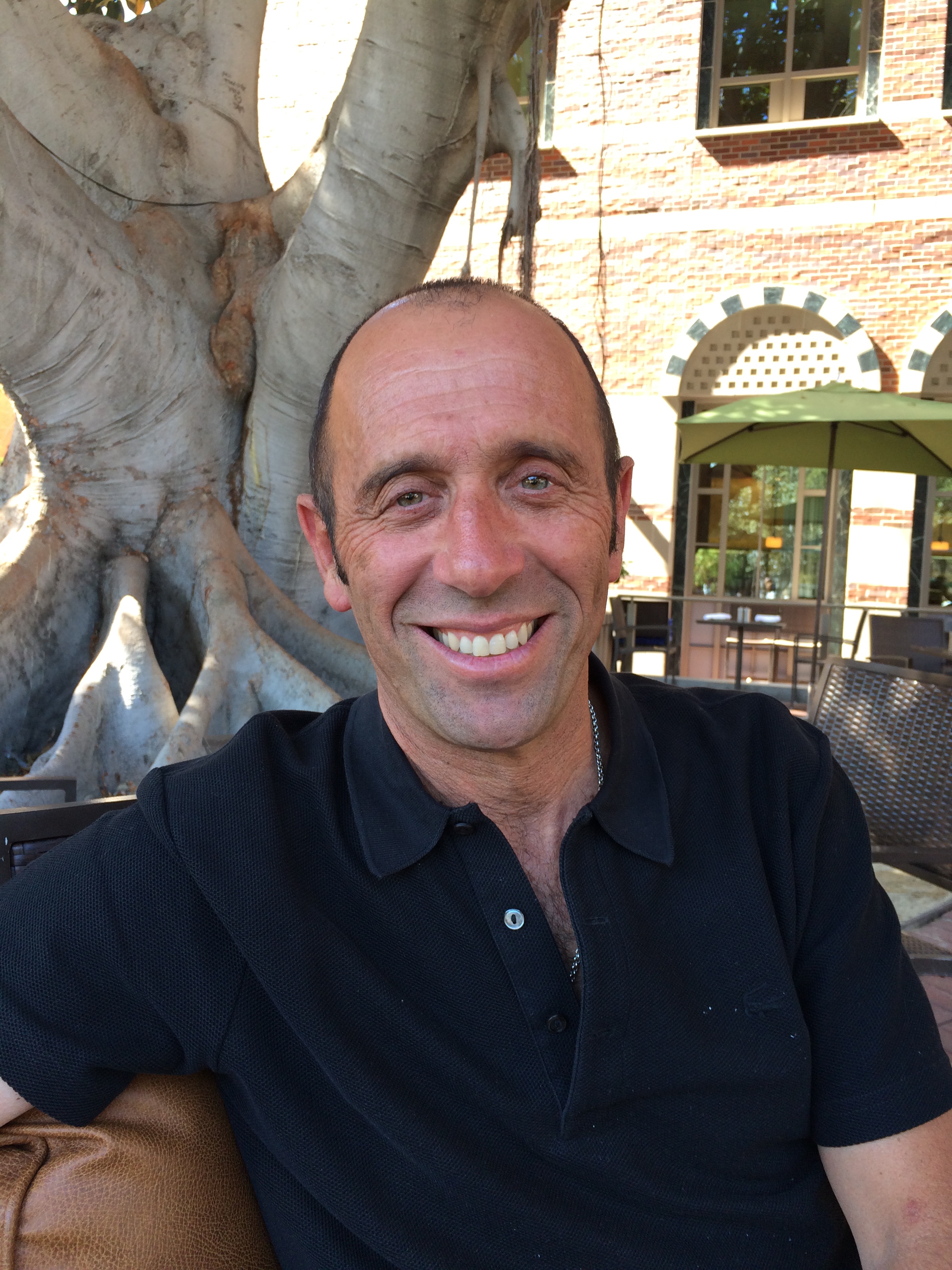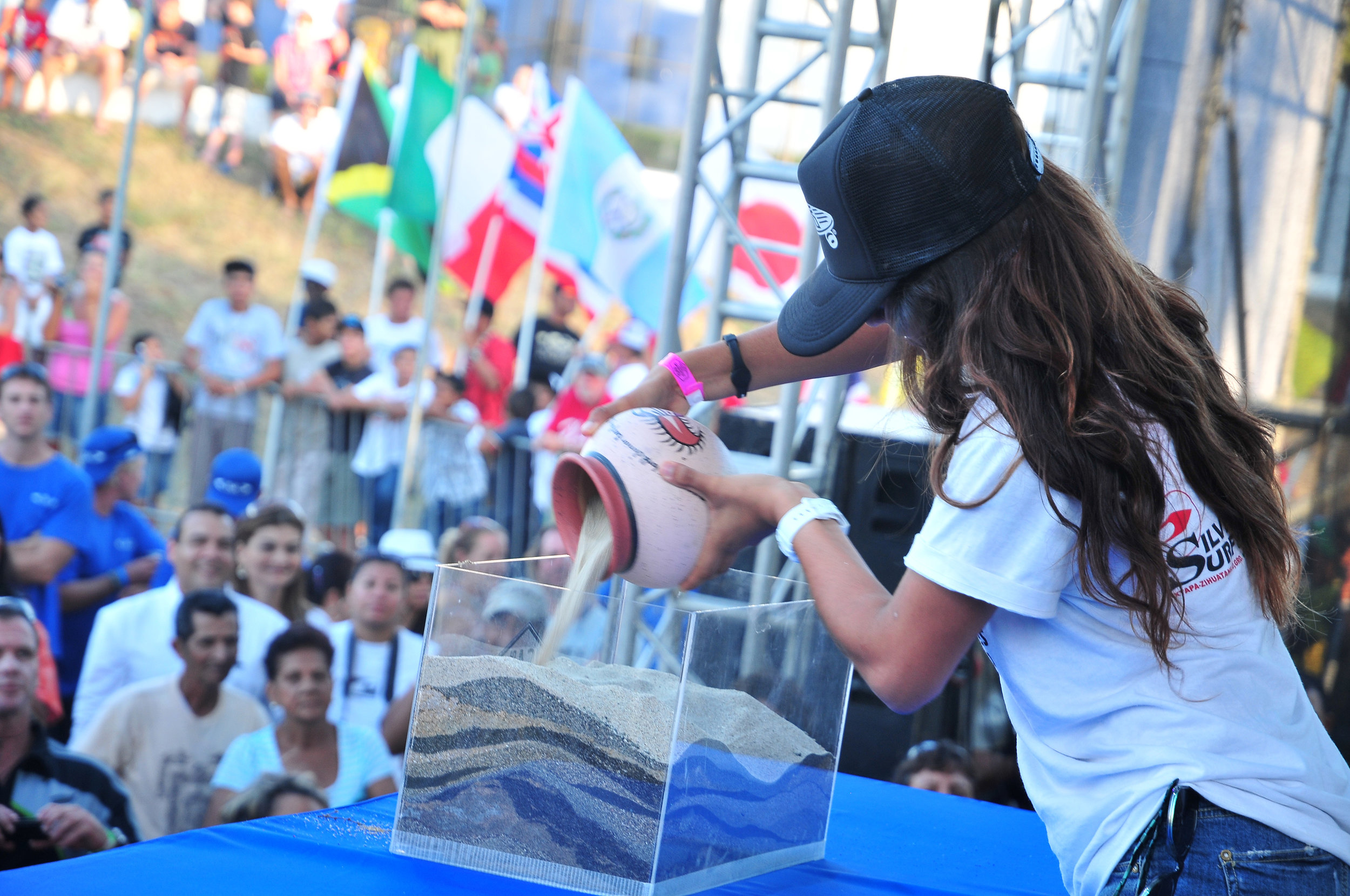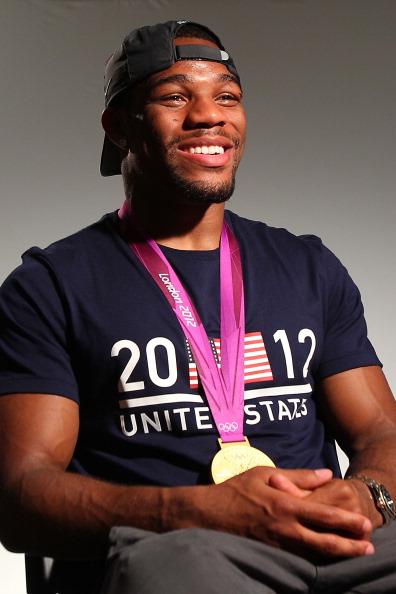BUENOS AIRES -- The International Olympic Committee, recognizing the gravity of its error, reinstated wrestling to the 2020 Summer Games program.
At the same time, the IOC rejected bids to put squash and a combined effort from baseball/softball onto the show at the Tokyo 2020 Games, underscoring the fix it has put itself in as it seeks to keep the program relevant.
"This was a mistake," the influential Kuwaiti Sheikh Ahmad al-Fahad al-Sabah said before the vote to reinstate wrestling, referring to the move last February by the IOC's policy-making executive board to take it off the 2020 program.
The IOC fixed the mistake in a one-and-done vote.

What next?
Maybe, perhaps, possibly finding a way for baseball/softball to be played in Tokyo, after all. That needs to wait, though, for the new president, and some other discussions -- none of which can even begin until after Tuesday, when part three of this landmark 125th IOC session transpires, the presidential election.
Sunday saw part two, the sports vote, following Saturday's part one, the election of Tokyo, which prevailed over Istanbul and Madrid.
Six candidates are running for president: Germany's Thomas Bach; Puerto Rico's Richard Carrión; Singapore's Ser Miang Ng; C.K. Wu of Chinese Taipei; Switzerland's Dennis Oswald; and Sergei Bubka of Ukraine.
With the sports vote out of the way, there are now two full days of mostly boring reports and mundane session business to keep the members from wondering what is the best steakhouse in Buenos Aires. The real action is elsewhere -- the presidential derby and re-hashing the 2020 vote, and triangulating the influence of Sheikh Ahmad, Bach and others such as Russian President Vladimir Putin.
Putin?
For sure.
When Putin took office as Russian president for the second time, on May 7, 2012, with whom did he hold his first meeting?
With Jacques Rogge.
The presentations and the vote Sunday marked just the latest step in a long-running Olympic drama. It is far from over because the IOC, frankly, has not figured out the essentials in mixing the traditional sports it has to have on the program -- track and field, swimming, gymnastics, wrestling -- with others needed to keep it fresh and interesting not just for television but to teens and young adults.
Such as, for instance, surfing and skateboarding.
The IOC in many ways has done a commendable job of adding so-called "action sports" to the Winter Games program.
The Summer program?
Over the 12 years of the Rogge presidency, the only changes to the program have been that both baseball and softball have been kicked out -- there's a cogent argument to be made that some of it is rooted in either Eurocentricism or latent anti-Americanism, the latter of which is vehemently denied -- and golf and rugby-sevens added for 2016.
For both Summer and Winter, the IOC has undertaken a laborious process designed to assign metrics to each sport -- TV viewing, internet ratings, governance categories and more -- and then tried to drop them into a group it calls the "core."
After every Games, all the sports are to be reviewed. To simplify, there is to be a new "core" every four years.
The first review -- the thing that landed wrestling on the outside this time around -- came after London. Modern pentathlon stayed inside the core. Wrestling, no.
As part of an intriguing debate that preceded Sunday's vote and presentations, Russia's Alex Popov -- the champion swimmer -- asked whether the IOC was going to have to go through the entire drama all over again in four years.
That is, he asked, was there going to be another "core" review?
Yes, Rogge said.
North Korea's Ung Chang, who typically does not ask pointed questions at the IOC's assemblies, raised his hand. He took the obvious route -- why last February was wrestling told it had to fight for a spot?
With Italy's Franco Carraro, chairman of the program commission, standing at the lectern, ready to answer, Rogge said that question clearly carried political overtones -- would you like me to answer? Everyone laughed, especially Carraro, and away Rogge went:
The wrestling federation, Rogge said, suffered from poor governance and confusing rules, and Greco-Roman was not so popular, among just a few reasons.
Meanwhile, Canada's senior member, Dick Pound, said what so many members have said privately, that to reinstate wrestling -- which was where the day was manifestly heading -- was simply taking the IOC "back to where we [had] started." What was the point?
Pound suggested the IOC take the five months between this assembly in Buenos Aires and the IOC's next full meeting, at the Sochi Games next February, to come up with a better solution.
Thank you, Rogge said, but no: "We should respect our own decisions."
First up, then, was the vote to approve the "core" group of 25 sports.
A simple majority was required to carry the vote.
The tally: 77 yes, 16 no.
Each of the three sports then made their presentations.
Baseball/softball went first.
The historical arc of what the two sports are trying to accomplish in growing worldwide is plain to see.
The games came of age in the United States in the early 20th century. Then they spread to the western hemisphere and to such Asian nations as Japan and Chinese Taipei.
Now they are taking root in Europe, Africa and elsewhere in Asia. Just as with golf, the plan is to use the Olympics as a catalyst to get bigger in growing markets.
The emotional pitch came from Don Porter, the longtime head of the softball federation. He fought back tears as he told the IOC members about 511 letters he kept in a box on his desk -- letters from girls all over the world asking for softball to be put back into the Olympics.
"I hope today you will … help restore their dreams," Porter told the IOC members.
Squash went next.
N. Ramachandran, the federation's chief, made it plain in the first few moments: "Squash represents the future, not the past." Yo, wrestling!
A video showed how you could put a glass court anywhere. The sport would need only two courts for its 64 Olympic players -- 32 men, 32 women. You can rent a court for $3,000 a day or buy two for about $500,000, Ramachandran said -- cheap. The federation has been campaigning for an Olympic spot for a full 10 years, the sort of persistence the IOC says it likes.
A teenager from the Bronx, Andreina Benedith, the United States' under-19 champion, speaking in Spanish, no less, said, "Squash changed my life."
All this was well and good.
But these two sports were up against the weight of tradition, history and politics.
"This is the most important day in the 3,000-year history of our sport," Nenad Lalovic of Serbia, the new president of FILA, the wrestling federation, said at the start of its presentation, outlining the various changes it, and the sport, had taken over the year.
He emphasized, "We are not here to speak about the past. We are here to speak about the future."
Now, FILA is a "modern, effective member of the Olympic family," he said. It promised the IOC 15 new commissions; now it has 17. It will have at least one female vice-president and on its board three seats for women and one for an athlete.
The February action by the IOC executive board, Jim Scherr, a FILA bureau member and the former chief executive of the U.S. Olympic Committee, was a "wake-up call," adding, "We have made extraordinary progress over the last six months, just extraordinary," including the addition of two weight classes in Rio 2016 for women, cutting out two classes for men.
"FILA," Scherr said, "understands its responsibilities."
So, too, did the IOC.
No way, especially after Tokyo won for 2020, was wresting going to be denied. Yes, baseball is big in Japan. But Japan won six wrestling medals in London last year, second-most.
Russia won 11. Those 11 medals made up 13 percent of the Russians' 82 total in London.
As Dmitry Chernyshenko, the head of the Sochi 2014 Winter Games, posted in a photo from inside the IOC assembly hall to his Twitter feed, "Wanna see the one who would say 'no' to the legendary Karelin!;-)"
Alexander Karelin, of course, is the legendary man-mountain Greco-Roman wrestler, winning three gold medals and one silver over his Olympic career.
Reality check: if Russia, the United States, Japan and others wanted it, it was going to happen.
Super-reality check: Putin, Putin, Putin. The Sochi Games are five months away, and though wrestling is not a Winter Games sport, don't think for a second that he doesn't exert considerable influence over what is happening here.
The vote, and in the first round, with 48 needed to get back in: 49 for wrestling, 24 for baseball/softball, 22 for squash.
Now comes the intriguing possibility that five months from now the new president -- whoever he is -- will carve out an exception to the rules to allow the runner-up to be allowed a place in the Tokyo program.
One might say that's unthinkable, that IOC rules don't allow for such a thing.
Then again, last February, who would have ever thought that wrestling would have had to fight in the first instance for its place in 2020?
If you were listening closely, you might have heard Rogge drop a fascinating signal as the meeting wrapped up Sunday afternoon. He said, "Hopefully, baseball is successful in the future."













